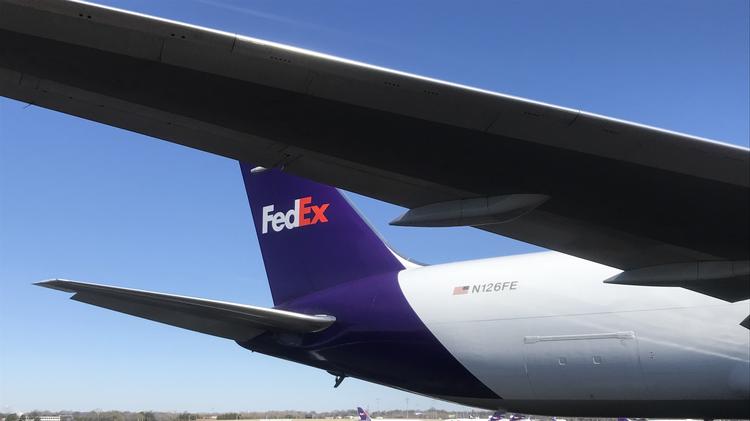FedEx CFO: 'We are here at the bottom, but we can see a way out'
“Disappointing,” “not pleased” — those were just a few of the words FedEx’s top leaders used to describe its second quarter 2020 results.
The Memphis-based shipping and logistics giant reported its Q2 2020 results Tuesday, Dec. 17, and — as expected — it was another quarter of grim results.
The adjusted non-GAAP net income for the quarter was $660 million in Q2 2020 compared to $1.08 billion in Q2 2019. Operating income was $684 million in Q2. That number was $1.33 billion for the same period the prior year.
For more quarterly fiscal numbers, see the end of the story.
“As I look out there, I am frustrated. I’m sure our investors are frustrated,” Alan Graf, executive vice president and CFO for FedEx Corp., said during the earnings call. “We are here at the bottom, but we can see a way out.”
FedEx cited weak global economic conditions, increased expenses at FedEx Ground — due to expanded services — and the loss of Amazon as a customer as a few of the big headwinds for the quarter. FedEx’s decision to not renew its FedEx Ground contract with Amazon was made in August, and thus had a larger impact on Q2.
As a result of the weak earnings, FedEx has now adjusted its projected earnings per diluted share for fiscal 2020 to be $10.25 to $11.50.
During the Q&A portion of the call, analysts had a lot of questions about the earnings miss by the FedEx Ground segment. Operating income for FedEx Ground was $342 million in Q2 2020 compared to $644 million in Q1 2020 and $590 million in Q2 2019.
FedEx execs repeatedly cited that they underestimated the upfront costs related to the shift to seven-day delivery. The company also anticipated handling about 33 million packages on Cyber Monday, but that number turned out to be more like 38 million. Couple that with the fact that the peak holiday rush was six days shorter this year, which equated to less time to handle more packages, and FedEx Ground struggled.
And as the Ground questions continued from analysts, Fred Smith — founder, chairman, and CEO of FedEx — finally said, “We have answered it three times. … Not sure it is productive to plow this ground anymore."
Geopolitical tensions were again referenced as having a negative impact, though FedEx leaders are encouraged by what they are seeing in regard to a possible U.S./China trade deal. They are also more confident in the Brexit strategy then they stated previously.
The TNT integration, which has incurred behemoth expenses over the past several years, continues. However, FedEx plans to have ground interoperability in Europe by May 2020.
One of the ways FedEx does plan to cut costs is through the reduction of flight hours — post-peak— by 6-8%. The reduction will occur both domestically and internationally. This is in part a cost-saver, but it also correlates with the fact that FedEx will have a “net reduction of several hundred pilots” next year due to retirement.
So, when does FedEx expect to see its myriad of investments in new technology, facility improvements, and expanded services start to pay off? Smith said by Q4 all of those strategies should “begin to bear fruit.”
All eyes on Q4.



No comments:
Post a Comment